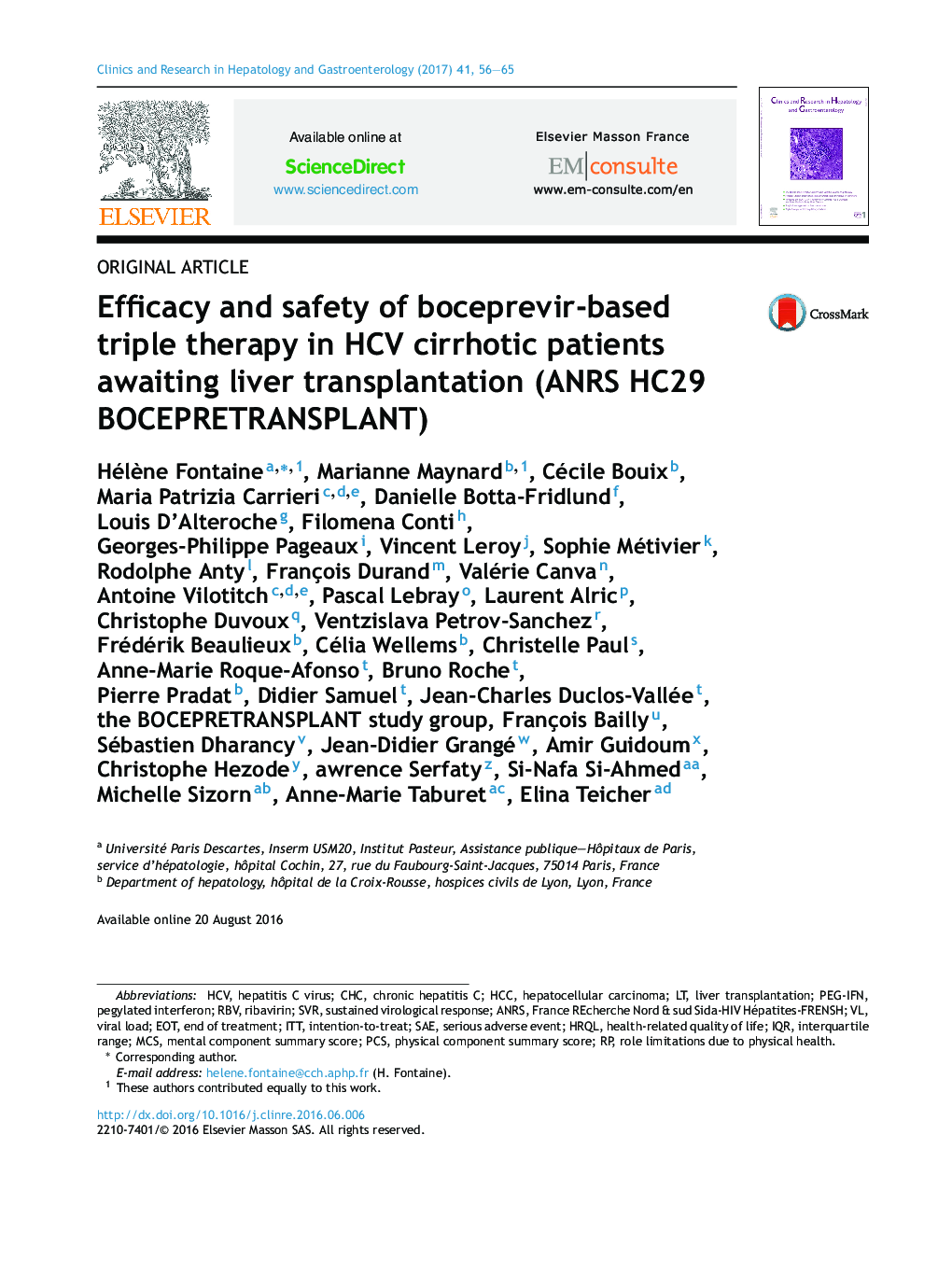| Article ID | Journal | Published Year | Pages | File Type |
|---|---|---|---|---|
| 5657897 | Clinics and Research in Hepatology and Gastroenterology | 2017 | 10 Pages |
SummaryBackground and aimsIn this French multicentre, open-label study, we analyzed the efficacy, safety and patient-reported outcomes of a boceprevir-based triple therapy in HCV genotype 1 cirrhotic patients awaiting liver transplantation (LT).MethodsPatients received PEG-IFN/ribavirin (RBV) for 48 weeks (W) and boceprevir from W4 to W48 or until LT.ResultsFifty-one patients (80% males, median age: 56 years) were included. Fifty-seven percent had hepatocellular carcinoma and 43% end-stage liver disease. At enrolment, the median MELD score was 9 (range: 6-18); the Child-Pugh score was A in 65%, B in 35% and C in 2%. Therapy was discontinued because of severe adverse events (SAEs) in 39% of cases and virological inefficacy in 24%. 16% of patients had undetectable HCV RNA 24 weeks after the end of treatment (SVR24). LT was performed in 18 patients (35%). HCV RNA was undetectable in 16.6% at LT. Seven patients (14%) died and three deaths were attributed to treatment. SAEs (n = 129) were observed in 84% of patients. Twenty-four percent of patients developed severe infections. Albumin < 35 g/L was independently associated with severe infection. Compared with baseline values, a significant decrease (P = 0.02) of the physical dimension of health-related quality of life was observed between W4 and W24. The mean (95% CI) number of self-reported symptoms doubled during treatment (from 6.3 [4.8-7.7] to 11.8 [9.3-14.3]; P < 0.001).ConclusionsThe safety of the PEG-IFN/RBV/boceprevir combination is poor in patients awaiting LT, with a high risk of severe infection. Moreover, the limited efficacy confirms the indication for IFN-free combinations in these patients.
